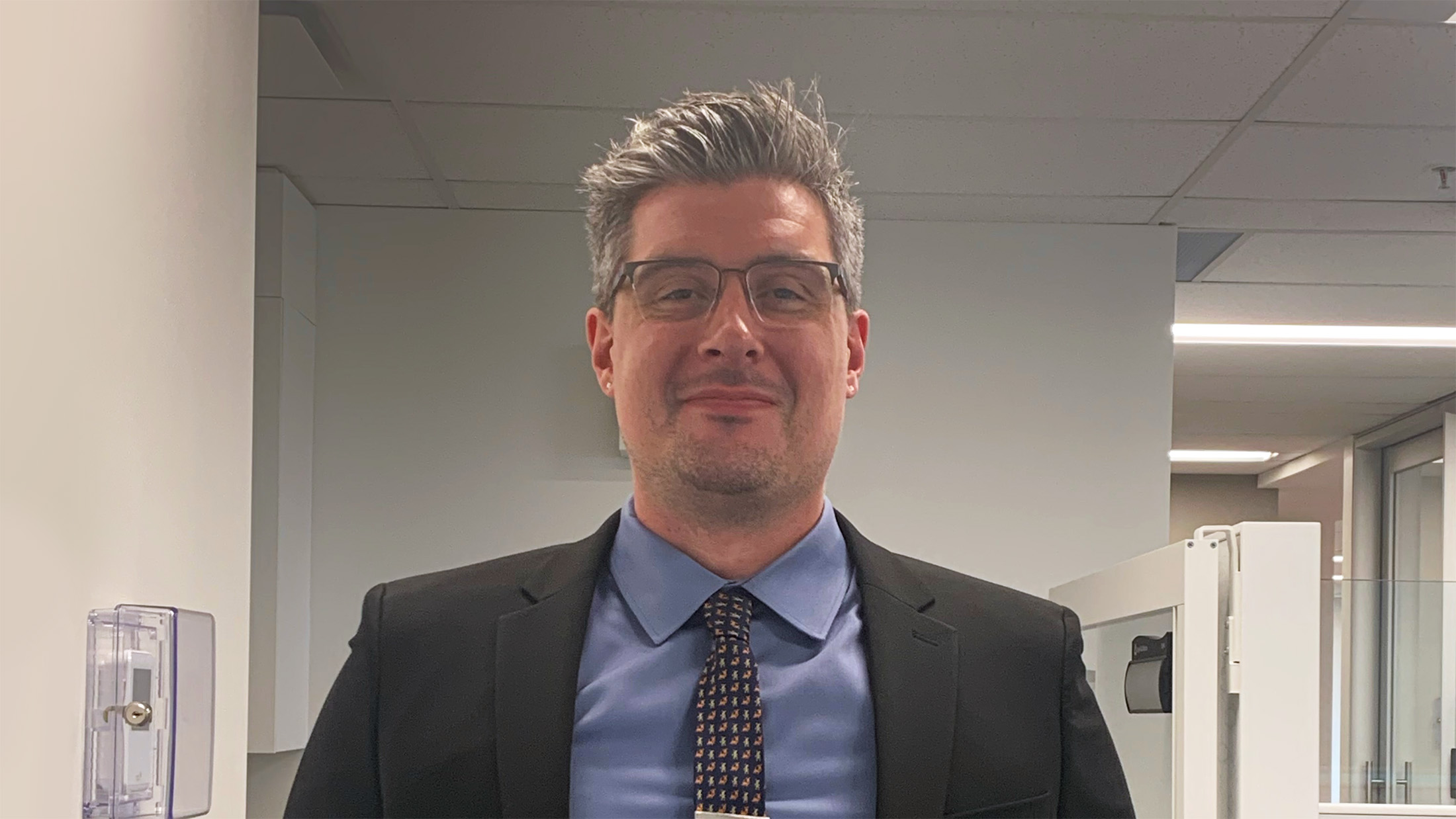A lifetime overcoming roadblocks culminates in a law degree for Indigenous student
Helen Metella - 8 July 2024

Ryan Marks
Some memories are uncomfortable for those who studied at the University of Alberta during the COVID-19 pandemic. For Ryan Marks, ’15 BCom, the experience was a low point in his life that compounded many prior lows, yet it led to him finding a new direction for his ambitions.
In the fall of 2020, he was a first-year law student living in HUB: “Nobody else there, yellow tape everywhere. It was a brutal experience. No social interaction, trying to study with nobody to bounce ideas off. And talking with classmates is a big part of law school because law is interpretation.”
Attending lectures by Zoom was frustrating and stressful for Marks, who was diagnosed with adult-onset ADHD between his undergrad degree and law school. He failed three courses and lost his first year.
When he repeated the courses the next year, he slammed into another huge obstacle. None of the law firms hiring for summer positions would consider him. Recruiters eyed his first-year results and, since they did not yet have access to his new marks, declined to meet with him.
The only exception was Legal Aid Alberta. “And that sent me down a different path,” says Marks, who already had a BCom and had hoped to become a corporate lawyer. “I got humbled.”
Marks worked the summer at Legal Aid, then volunteered with Student Legal Services on criminal and civil files, and helped clients of The Mustard Seed (a non-profit organization for those experiencing poverty and homelessness). It gave him a front-row view of the high percentage of Indigenous people traversing the justice system.
“It felt like 80 per cent of almost everyone I saw in criminal courts, appearing in chains and jumpsuits, were Indigenous,” he says. “I knew it was bad but I didn’t realize it was that bad.” Moved, he changed his career goals and now wants to be a criminal or family lawyer, focusing on Indigenous clients.
It was a moment of epiphany for Marks, 36, who is of Cree and Ojibway heritage (his mother's side is from Mistawasis First Nation in Saskatchewan; his father's from Peguis First Nation in Manitoba) but was “very white-raised” in foster care homes in Alberta because his mother lived with addiction.
His maternal grandmother took custody of him and his sister when they were eight and six, while also supporting his uncle — all on the modest salary of a school secretary. His mother died when he was 15 and his late teens were devoted to partying. He failed high school. “I wish I could go back and slap the younger me.”
He upgraded his education at Edmonton’s Centre High, where he was introduced to the U of A’s Transition Year Program (TYP).
Run by First Peoples’ House, TYP is a one-year university access program for First Nations, Métis and Inuit students who may not be prepared to enter university through the regular admissions route. Students take first-year classes that teach academic skills, writing and study habits, and have access to tutors, Elders and Knowledge Keepers, advocates, social and cultural events, and an intimate community of classmates.
“TYP laid the groundwork for what to expect in university,” says Marks. “Without that kind of support, I would have flunked out.”
Yet calculus proved his nemesis and he was put on academic probation. For 18 months, he poured concrete sidewalks and driveways, an experience that taught him that studying, no matter how hard, was preferable to “sixty-hour weeks with guys screaming at you all the time, go, go, go, and all these guys with broken bodies.”
Marks returned to the U of A business school, spurred on by a then-girlfriend whose work ethic inspired him. “She studied eight hours a day, day in and day out. I felt I had to keep up.”
He graduated with a degree in economics and business law but without a professional designation. With no appetite for climbing the management ladder, he again found himself doing physical labour.
Still fascinated by his business law courses, he set his sights on law school, only to realize that his ADHD was a problem in the reading comprehension sections of the admissions test, which imposes strict time limits to digest long, convoluted paragraphs. Undaunted, Marks applied for an academic accommodation and spent nearly two years studying until he finally got a competitive score.
Through all his ups and downs, Marks has learned a lot about grit. “You can go through a really bad life growing up and still persevere … It’s the old adage: what doesn’t kill you makes you stronger.”
Still, there is someone even more proud of what he has accomplished: his 76-year-old grandmother.
“I don’t think I’ve ever seen anybody as excited to see a graduation.”
The Transition Year Program is made possible with support from donors, including EPCOR. Learn more about the donor-supported expansion of First Peoples’ House and its programs.